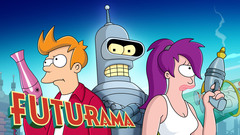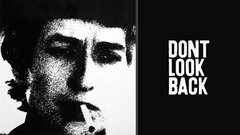Donovan

Musician • Singer • Songwriter • Record Producer
Birth Name: Donovan Phillips Leitch
Birth Date: May 10, 1946
Age: 79 years old
Birth Place: Glasgow, Scotland, UK
Children: Ione Skye, Donovan Leitch
For a brief period, Scottish folk singer Donovan was a key figure in the psychedelic rock movement of the late 1960s thanks to a string of singles, including "Sunshine Superman," "Mellow Yellow," "Hurdy Gurdy Man" and "Atlantis" which hovered along an axis of beat poetry, jazz grooves and lysergic lyrical content. He had emerged only a few years prior as an earnest folk singer, inspired by English and American traditional music.
He resurfaced in 1966 with the funky, flighty "Sunshine Superman," which soon established him as a kindred spirit to the counterculture movement. The end of the hippie era in the early 1970s also brought Donovan's time on the charts to a close. The early '90s saw renewed interest in his material thanks to the British alternative scene, which echoed his melting pot approach of psychedelia, dance grooves and rock volume. Donovan settled comfortably into his status as a grandfatherly emissary of flower power, issuing his messages of love and freedom to audiences of new and old fans alike. His induction into the Rock and Roll Hall of Fame firmly cemented his position as one of the 1960s' most creative figures.
He was born Donovan Phillips Leitch on May 10, 1946 in the burgh of Maryhill in Glasgow, Scotland. As a child, he contracted polio, which left him with a permanent limp which was largely disguised to the public during his musical career. Donovan was introduced to English and Scottish folk music through his parents, factory workers Donald and Winifred Leitch, and took up the guitar in his early teen years. A flirtation with art school proved brief, as the lure of live performing was too strong to ignore. Donovan would spend much of the early 1960s traveling through rural England, soaking up the region's rich history of folk music while learning American folk and blues songs from local players.
He supported himself through busking while penning his first original songs, which were recorded on a 10-track demo for Pye Records in 1964. His debut single, the wistful "Catch the Wind," broke the Top 5 on the U.K. pop charts in 1965, earning him regular status as a guest performer on the popular variety series "Ready, Steady, Go!" (BBC ). Critics quickly earmarked him as a British alternative to Bob Dylan, noting similarities in their delivery and writing style. A rivalry between the two musicians was constructed in the press, which was underscored by an embarrassing encounter captured on film by D.A. Pennebaker in the documentary "Don't Look Back" (1967) in which Donovan presented an original song that sounded remarkably like Dylan's "Mr. Tambourine Man."
Despite the faux pas, Donovan's career continued to gain momentum, with a second single, "Colours," achieving U.K. chart success. His American debut at the 1965 Newport Folk Festival came soon after.
After releasing his debut album, What's Bin Did and What's Bin Hid, and its follow-up, Fairytale, in 1965, Donovan parted ways with his labels - Pye in the U.K. and Hickory in the U.S. - and took significant strides to distance himself from the "British Dylan" label. Key to his transformation was producer Mickie Most, who oversaw all of Donovan's post-1965, post-folk recordings, though in later years, Donovan would take some credit for the production as well.
The first salvo in Donovan's shift from folk to the growing psychedelic counterculture was the 1966 single "Sunshine Superman." Set to a funky, percussive beat and featuring both sitar and harpsichord in its complex arrangement, the song was briefly held up by contractual issues with Pye, but by 1967, the entanglements had been settled and the song shot to No. 1 on the U.S. pop charts. An album of the same name, released in the States on Epic Records, broke the Top 20 that same year, and a second single, the bluesy "Season of the Witch," further established Donovan as a leading musical figure in the flower-power movement. That status was solidified by the 1967 single, "Mellow Yellow," a lilting, semi-humorous ditty with distinctly sexual overtones that rose to No. 2 on the Billboard singles charts.
Not even a 1966 drug bust for marijuana possession could halt his rise to the top of the music scene; he was soon found in the company of the Beatles, whom he accompanied to India to study transcendental meditation with the Maharishi Mahesh Yogi in 1967.
A relationship with American Enid Stuhlberger produced two children - a son, Donovan Leitch, and daughter, Ione Skye - who would follow in their father's footsteps with entertainment careers in acting and music.
Donovan continued to net chart hits with 1967's "Jennifer Juniper" and the harder-edged "Hurdy Gurdy Man" in 1968, which was a deliberate attempt to draw the attention of U.S. audiences who were favoring the heavier sounds of Cream and the Jimi Hendrix Experience.
But by 1969, Donovan's time at the top of the pop business had reached its conclusion. There would be two more chart hits, the soaring "Atlantis," which featured backing vocals by Paul McCartney, and a sly boogie called "Barabajagal (Love Is Hot)" with the original lineup of the Jeff Beck Group, which included Ronnie Wood and Nicky Hopkins. That same year, creative differences between Donovan and Most led to the singer ending their partnership. The decision proved to be fatal for Donovan's career: his fortunes went into steep decline as subsequent albums failed to match the chart impact of his mid-'60s hits.
There was a brief excursion into acting in the 1972 "Pied Piper," for which he played the title role, and contributions to the soundtrack for Franco Zeffirelli's "Brother Sun, Sister Moon" (1974), but by the midpoint of the 1970s, Donovan was reduced to opening for progressive acts like Yes.
The rise of the punk and New Wave movements branded his music as hopelessly dated hippie songs, and by 1983, he had retired from composing and recording new music.
The early 1990s saw revived interest in Donovan's music via the English alternative scene, where "Barabajagal" had become an unexpected hit on the neo-psychedelic, drug-steeped rave circuit. "Madchester" outfit the Happy Mondays name-checked him on their 1991 hit album Pills 'n' Thrills & Bellyaches, and he eventually joined them on tour. A 1992 boxed set and reissues of his best Epic recordings continued to improve his profile, and by 1996, he was back in the studio, this time with producer Rick Rubin for a new album called Sutras. Rubin had recently revived the career of Johnny Cash with a series of highly acclaimed recordings, and hoped to do the same for Donovan, but despite effusive critical praise, Sutras failed to find an audience.
He retreated for nearly another decade before releasing 2004's Beat Café, an albums of originals which evoked the jazzy feel of his late '60s work. A brace of reissued albums kept Donovan in the public eye, as did his 2005 autobiography, Hurdy Gurdy Man.
In 2007, he played some of his highest-profile shows in decades as part of a presentation by filmmaker David Lynch on the benefits of transcendental meditation. His long career finally received its due in 2009 with his receipt of the BMI Icon Award, which paid tribute to his influence on a variety of musical scenes. The following year, he was part of the 2012 class of inductees into the Rock and Roll Hall of Fame alongside Guns N' Roses, the Red Hot Chili Peppers, and the Small Faces.
By Paul Gaita
Credits

Donovan & The Beatles in India

Donovan magicien

Donovan: Hurdy Gurdy Man

Donovan: Season of the Witch

Donovan: Hurdy Gurdy Man

Hit Melody Vintage

Music City Roots: Live From the Loveless Cafe

When Rock Goes Acoustic

Change Begins Within

Donovan: Sunshine Superman

Sunshine Superman: The Journey of Donovan

Jimmy Kimmel Live!Stream

FuturamaStream

84 Charlie Mopic

The Secret Policeman's Private Parts

Aliens From Spaceship Earth

The Pied Piper

Bobbie Gentry

Allegro




